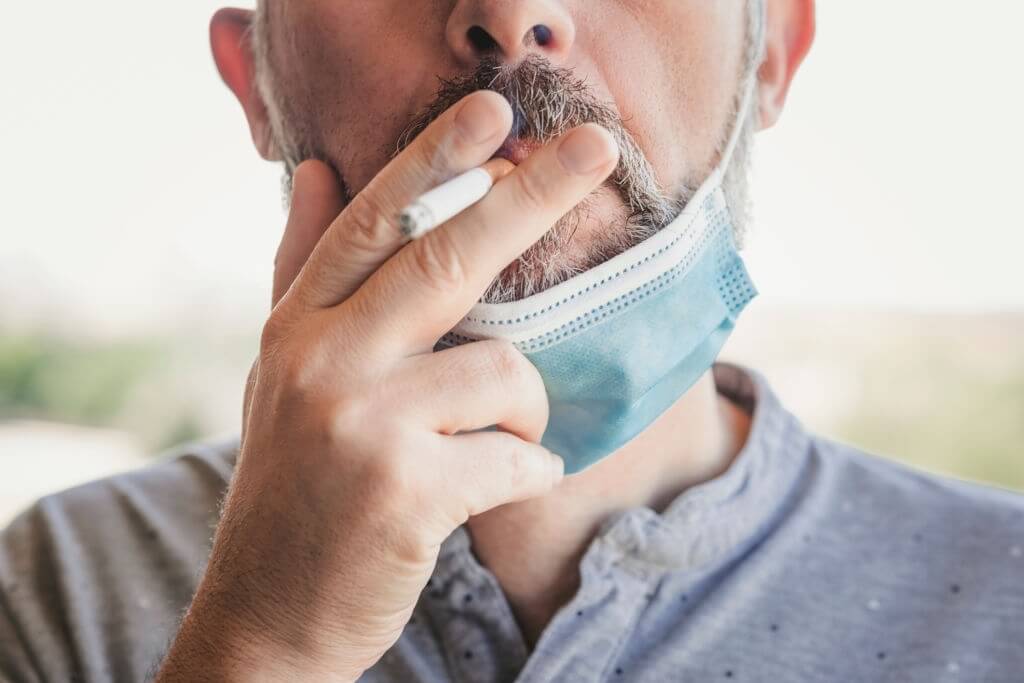There were a lot of news reports gaining attraction and one of the news reports claimed that smokers are less likely to contract coronavirus, while some claim that smoking increases your chance of serious disease.
While evidence for a relationship between smoking and COVID is still developing, the negative impact smoking has on your health surpasses any potential benefits.
Does Smoking Reduce The Risk Of COVID?
With infection in different profiles, the experts also have found many things with their research on different profiles. The relation between smoking and its effects on the lungs is known to everyone but the same has surprised the experts as the viral infection has done the least damage to those who were smoking regularly irrespective of their age and duration of smoking.

A number of recent investigations have discovered low smoking rates among COVID-19 patients, leading experts to believe that smokers may be immune to corona. This tale piqued the interest of national and international media, and we began getting queries about the issue, in general, practice shortly after.
There was some light on the process that led to scientists and the media misinterpreting observational studies in this article. We also bring out the methodological problems in a number of research that led to premature conclusions.
The role of primary healthcare professionals in reducing the negative implications of false claims regarding smoking’s beneficial effects is also worth talking about. Researchers have discovered a possible explanation for why smokers had fewer COVID instances than non-smokers, despite previous findings claiming that smoking makes the illness worse.
Two medicines that attach to a receptor in mammalian cells that suppresses the synthesis of ACE2 proteins, a mechanism that appears to decrease the capacity of the SARS-CoV-2 virus to enter the cell, have been found by researchers.
Due to the high demand for information on COVID-19 and the resulting “publishing pressure,” numerous articles were published in peer-reviewed journals without sufficient peer assessment. In addition, many articles were originally posted online as a preprint rather than going through the conventional time-consuming peer-review procedure. Despite the fact that scientific conversations might be resumed later on preprint servers, the media and many scientists did not pay attention to them.
When it comes to smoking cigarettes and COVID-19, there’s a bit of a catch-22. While active smoking is linked to higher disease severity, several studies have found that smokers had fewer COVID cases than non-smokers. Cigarette smoke is known to contain polycyclic aromatic hydrocarbons (PAHs).
These can attach to aryl hydrocarbon receptors and activate them (AHRS). Any feature on the surface or interior of a cell that is designed to receive and bind to a certain chemical is known as a receptor. AHRS is a kind of receptor found inside mammalian cells that functions as a transcription factor, allowing it to affect a wide range of cellular processes by increasing or decreasing the expression of certain genes.
First, the researchers looked at the gene expression levels of ACE2 in distinct cell lines. ACE2 expression was found to be greatest in cells from the oral cavity, lungs, and liver. AHR activators from cigarette smoke result in two medicines that are able to decrease the expression of ACE2 in mammalian cells, therefore reducing the capacity of the SARS-CoV-2 virus to enter the cell.
Many major health issues can be caused by smoking, including heart and circulation illnesses, chronic lung disease, and diabetes. Smoking increases the chances of acquiring these conditions. Patients who have these diseases are more likely to be hospitalized or die if they contract the coronavirus. This is why smoking should not be considered safe and healthy to fight against the coronavirus.